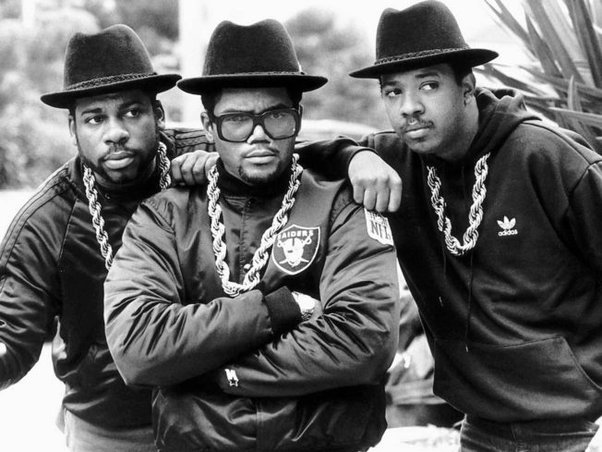Hip-hop, a cultural movement that has grown from the heart of inner-city New York in the ’70s to a worldwide phenomenon, has impacted far more than just music. It has touched lives, influenced fashion, shaped language, and provided a voice to the marginalized. However, one of the least discussed effects is the psychological impact of hip-hop stardom on the artists themselves. Expert Benjy Grinberg discusses this aspect better to understand hip-hop’s highs and lows of fame.
The Glare Of The Spotlight
For many hip-hop artists, the rush to fame often involves coming from environments marked by struggle and, through their artistry, finding themselves suddenly in the spotlight. This transition can be as disorienting as it is dazzling. Fame comes with many stressors: the pressure to succeed, the fear of losing relevance, and the constant scrutiny in an era of social media and 24/7 news cycles.
Identity And Self-Expression
Hip-hop has always been a form of self-expression, allowing artists to present their identities boldly and unapologetically. Lyrics tell stories of personal experiences, societal observations, and dreams of a better future. But as artists climb their way up, maintaining their identity against the backdrop of fame becomes challenging. Benjy Grinberg points out that stardom carries expectations that can stifle the raw authenticity that originally defined their music.
Mental Health Stigma
Mental health in hip-hop culture has been complex, as its portrayal varies widely across the genre. Some artists use their platform to expose and process their vulnerabilities, while others may feel pressured to maintain an image of toughness, often at the cost of their well-being. Despite recent shifts towards open dialogue about mental health, the stigma still lurks in the shadows, making it difficult for artists to seek help.
The Beast Of Success
Success in the hip-hop industry doesn’t just involve the artists’ music but their entire persona – a persona that often feels the strain of being under continuous observation. As their brand becomes a commodity, hip-hop stars must continuously innovate to stay relevant, often sacrificing their privacy.
The Pressure Cooker Of Fame
Expectations to consistently produce hits, maintain public interest, and satisfy a bottomless audience demand can create immense pressure. Hip-hop artists are also expected to be trendsetters and influencers. Their words and choices reverberate, influencing fans’ opinions and lifestyles.
This intense scrutiny can lead to anxiety and a perpetual state of stress. When your life becomes public property, the lines between the personal and professional blur, and the pressure can be taxing.
Wealth And Isolation
Pursuing wealth is a common theme in hip-hop culture, often seen as a marker of success and a way out of poverty. However, the pursuit often leads to isolation. According to industry expert Benjy Grinberg, trust becomes a luxury as the line between genuine relationships and those anchored in the artists’ fame and fortune grows increasingly murky.
Furthermore, there’s a paradox in reaching the pinnacle of fame only to find that it doesn’t necessarily equate to happiness. Many hip-hop artists find that the material wealth accumulated through their careers pales compared to the value of genuine human connection.
The Role Of Community
The community can offer a lifeline to artists navigating the stormy seas of fame. From a loyal fan base to tight-knit connections within the hip-hop industry, the community provides a buffer against the isolating effects of stardom. Engaging with communities with similar backgrounds and stories can help artists stay grounded and connected to their roots.
However, community expectations can be a double-edged sword. While offering support, they can also pressure artists to conform to a particular image or beliefs, restricting personal growth and experimentation with their art.
Coping Mechanisms
In response to the psychological pressures of stardom, hip-hop artists, like many celebrities, may turn to various coping mechanisms. Some find solace in substance use, while others find an outlet in activism or philanthropy. Establishing foundations, giving back to their communities, or speaking out on social issues can give artists a sense of purpose beyond their music.
The Art As Therapy
Creating music can be therapeutic, and the studio is a sanctuary for many hip-hop artists. Writing, composing, and producing offers a form of expression and control within the chaotic realm of stardom. Lyrics allow for introspection and catharsis, reflecting personal journeys and societal commentary.
Many hip-hop artists also explore different aspects of mental health through their art, breaking down barriers and fostering a deeper understanding among their audiences. In doing so, they help destigmatize mental health struggles and encourage open conversation.
Conclusion
The psychological impact of hip-hop stardom is a complex and deeply personal journey. While fame’s allure is strong, the accompanying psychological challenges are often underestimated. Balancing excitement with pressures demands resilience and a solid support system.
Artists must navigate their identity amidst public expectations and personal authenticity. In hip-hop, where authenticity is valued, remaining true to oneself is a personal and public struggle. The industry, fans, and artists are increasingly aware of the mental toll of hip-hop fame. More open discussions on mental health and support efforts are reshaping the hip-hop community, emphasizing holistic success in the limelight.
Beyond the beats and rhymes lies a truth: stardom is more than wealth and fame—it’s about the person behind the image. Prioritizing mental wellness and support for artists is vital for the hip-hop world to nurture their truths beyond the music.
